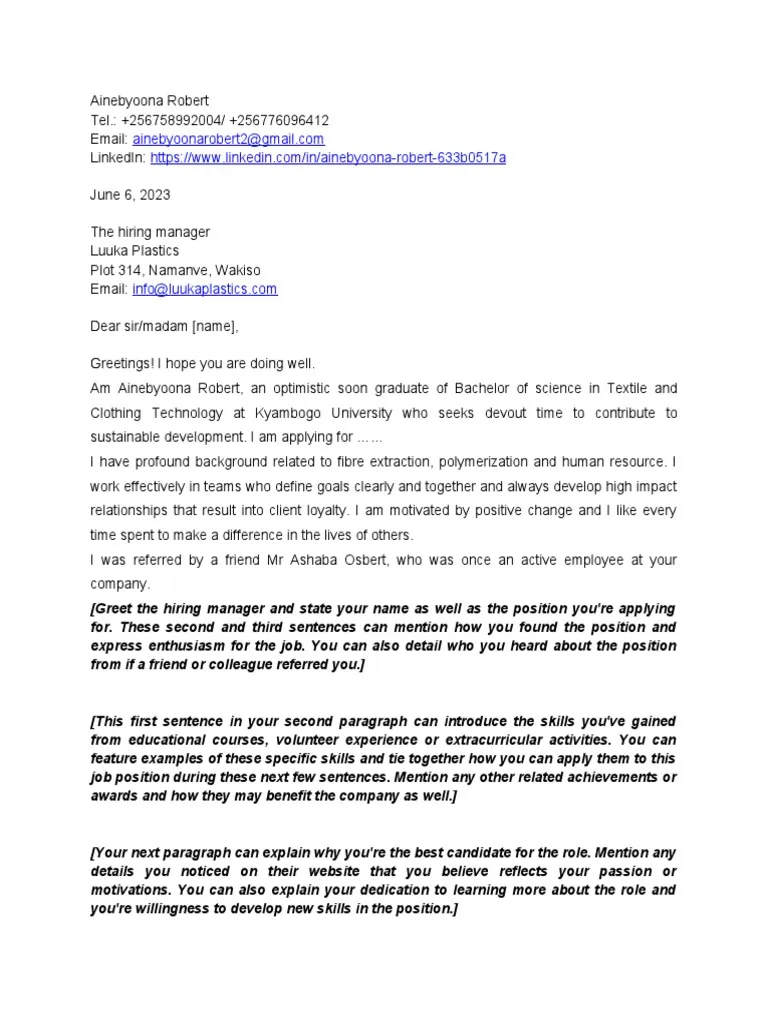Understanding the Importance of a Cover Letter
In the competitive job market, a well-crafted cover letter is your chance to make a strong first impression. While a resume provides a summary of your qualifications, a cover letter allows you to elaborate on your skills, experiences, and enthusiasm for the specific role and company. For individuals with no prior experience, a cover letter becomes even more critical. It provides a platform to showcase your potential, transferable skills, and genuine interest, effectively compensating for the lack of direct work experience. It demonstrates your communication skills and attention to detail, both highly valued by employers. A cover letter helps you stand out from the crowd of applicants, giving you a significant advantage.
Why a Cover Letter Matters, Even Without Experience
Even when you lack professional experience, a cover letter is your opportunity to tell your story. It allows you to explain your career aspirations, articulate how your skills align with the job requirements, and demonstrate your understanding of the company’s values and mission. A cover letter is your chance to address the elephant in the room – the lack of experience – by proactively highlighting what you can bring to the table. It lets you connect with the hiring manager on a personal level, showcasing your personality, passion, and eagerness to learn. Consider it a proactive way to address any concerns they might have by emphasizing your transferable skills and enthusiasm. Without a cover letter, your resume might seem incomplete, leaving the hiring manager to guess at your motivations and suitability for the role. This critical document can be the difference between getting an interview and being overlooked.
Highlighting Transferable Skills

Transferable skills are abilities you’ve gained in one context (like education, volunteer work, or personal projects) that are valuable in a professional setting. These skills are crucial when you have no direct work experience. Think about what you’ve learned in school, during extracurricular activities, or through any volunteer work. These skills could include communication, teamwork, problem-solving, time management, leadership, organization, and adaptability. For example, if you led a student club, highlight your leadership skills, ability to manage a team, and organizational abilities. If you were part of a debate team, showcase your communication, public speaking, and research skills. Similarly, volunteering at a local charity would provide opportunities to highlight empathy, active listening skills, and the ability to work effectively with others. By identifying and emphasizing these transferable skills, you can demonstrate your potential to employers, even without a traditional work history.
Identifying and Showcasing Relevant Skills
Beyond transferable skills, pinpoint the skills most relevant to the specific job. Carefully review the job description and identify the key requirements. Then, brainstorm examples of how you have demonstrated those skills in your past experiences. For instance, if the job requires strong communication skills, provide examples of times when you effectively communicated ideas, resolved conflicts, or gave presentations. If the job requires technical skills, mention any coursework, projects, or personal endeavors where you utilized these skills. The key is to provide concrete examples. Instead of simply stating you’re a good communicator, describe a specific situation where you used communication to achieve a positive outcome. This could be a project you led, a presentation you gave, or a successful team collaboration. Focus on the most critical skills needed for the role and weave them into your cover letter. This approach will significantly increase your chances of getting noticed.
Researching the Company and Position
Demonstrating that you’ve researched the company is vital. This shows that you’re genuinely interested in the role and have taken the time to understand their mission, values, and culture. Visit the company website, explore their social media presence, read news articles, and look at employee reviews. Tailor your cover letter to showcase this understanding. Briefly mention a specific project the company is involved in, or a recent accomplishment. This demonstrates your genuine interest and ability to align your personal goals with the company’s. When discussing the position, carefully review the job description and identify the key responsibilities and required skills. Think about how your skills and experiences align with these requirements. Customize your cover letter to specifically address how you can contribute to the company’s success. The more relevant your letter is to the specific role and company, the better your chances of getting an interview.
Tailoring Your Letter to Each Application

Never use a generic cover letter. Each cover letter should be tailored to the specific job and company you’re applying to. This is where your research comes into play. Personalize your cover letter by addressing the hiring manager by name if possible. Mention specific details about the company, the role, and how your skills and experiences align. Customize your letter to show your understanding of the company’s needs and demonstrate how you can contribute to their success. This is the perfect way to make a great impression. To make the process easier, create a template with placeholders for specific details. This template can be a starting point, which allows you to customize it for each application. Don’t be afraid to revise and edit your letter to match the specific requirements of each job. This effort demonstrates your attention to detail and commitment to making a positive impression.
Formatting Your Cover Letter for Impact
The format of your cover letter is as important as the content. A well-formatted letter is easy to read and professional-looking, which makes a good impression. Use a clear, readable font like Arial or Times New Roman with a size between 11 and 12 points. Keep the letter concise, aiming for no more than one page. Divide your letter into clear paragraphs, using headings to guide the reader. Use appropriate spacing and margins. Start with your contact information, the date, and the hiring manager’s name and title. The body of the letter should include an engaging introduction, a persuasive body showcasing your skills and experiences, and a strong closing. Proofread your cover letter carefully to ensure there are no typos or grammatical errors. A well-formatted letter presents you as organized and professional, increasing your chances of getting noticed. The appearance of your letter can influence the reader. It is key to follow these guidelines.
Essential Elements of a Cover Letter
Every cover letter, regardless of experience, should include the following elements: Your contact information, the date, the hiring manager’s name and title, a compelling introduction, a body that showcases your skills and experience, a strong closing, and a call to action. Your contact information should include your name, phone number, email address, and possibly your LinkedIn profile URL. The introduction should grab the reader’s attention and state the position you are applying for and where you found it. The body of the letter is where you highlight your transferable skills and demonstrate your understanding of the company and the role. The closing should reiterate your interest and express your enthusiasm for an interview. Including a call to action, like requesting a call or meeting, is a great way to end. Make sure each component is well-crafted and complements the overall message. Pay attention to these elements to create a cover letter that stands out and gets results.
Crafting a Compelling Opening
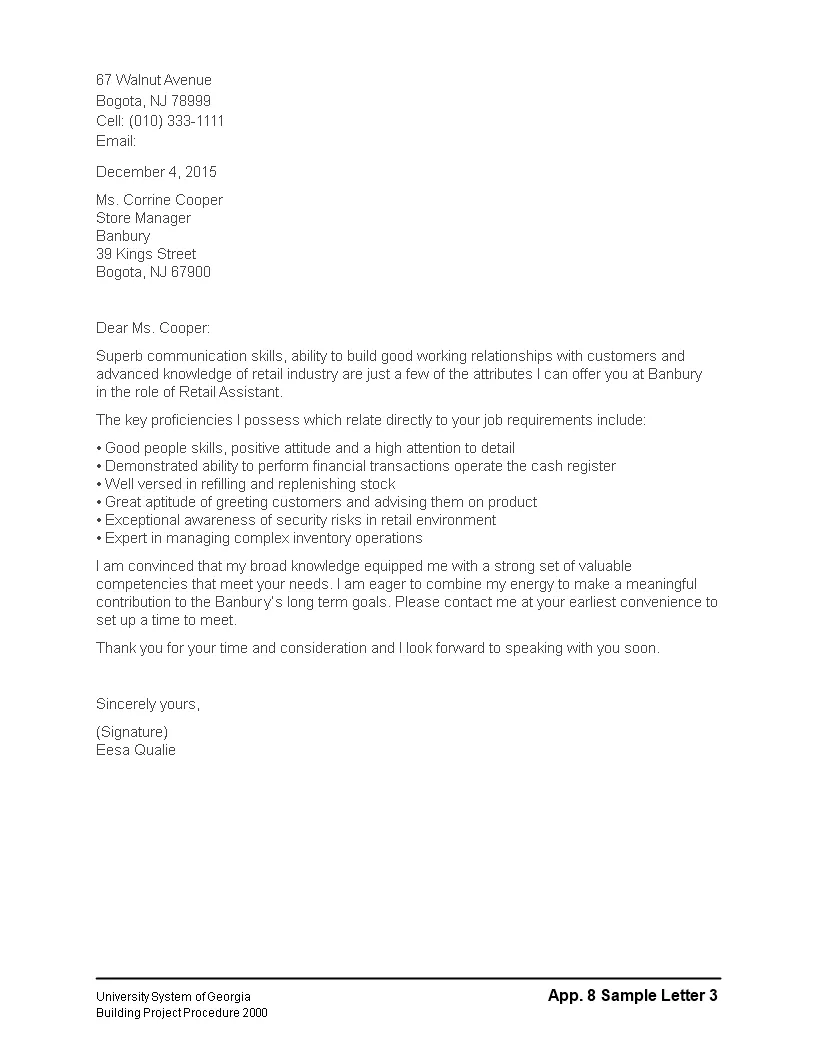
The opening of your cover letter is the first impression you make. It needs to grab the reader’s attention and motivate them to continue reading. Avoid generic openings like ‘I am writing to apply for the position of…’ Instead, aim for a more engaging approach. Consider starting with a statement of your enthusiasm for the role or company. Mention a shared connection or your admiration for a company project. Focus on what you can bring to the table, highlighting a skill or accomplishment that aligns with the job requirements. For example, you could start by saying something like, ‘I am writing to express my enthusiastic interest in the Marketing Assistant position at [Company Name], as I’ve followed your innovative campaigns for years.’ Or, if you have a referral, you can state that you were referred by an employee and excited about the opportunity. This shows you are confident and enthusiastic about the opportunity.
Showcasing Your Enthusiasm and Fit
Enthusiasm is infectious and can help offset a lack of experience. Throughout your cover letter, express your genuine interest in the position and the company. Explain why you are drawn to the role and what excites you about the opportunity. Demonstrate your understanding of the company’s mission, values, and goals. Talk about why you want to work for this particular company. This shows that you have researched and that you’re not just sending out mass applications. Highlight how your skills, experiences, and career aspirations align with the job requirements and the company’s culture. Show how your personality and work ethic would fit in the company. This helps the hiring manager envision you as a valuable asset. This enthusiasm makes you stand out among other applicants.
Highlighting Your Education and Training
Even if you lack professional experience, your education and training are valuable. Emphasize any relevant coursework, projects, or certifications. Highlight any specialized knowledge or skills you’ve gained through your education. Mention any relevant academic achievements or honors. If you participated in any group projects, describe your role and contributions. Focus on how your education has prepared you for the role. If you attended a prestigious university, mention that as well. If you’ve taken any courses that taught you specific skills, this can be a great way to show your potential.
Emphasizing Relevant Projects and Activities
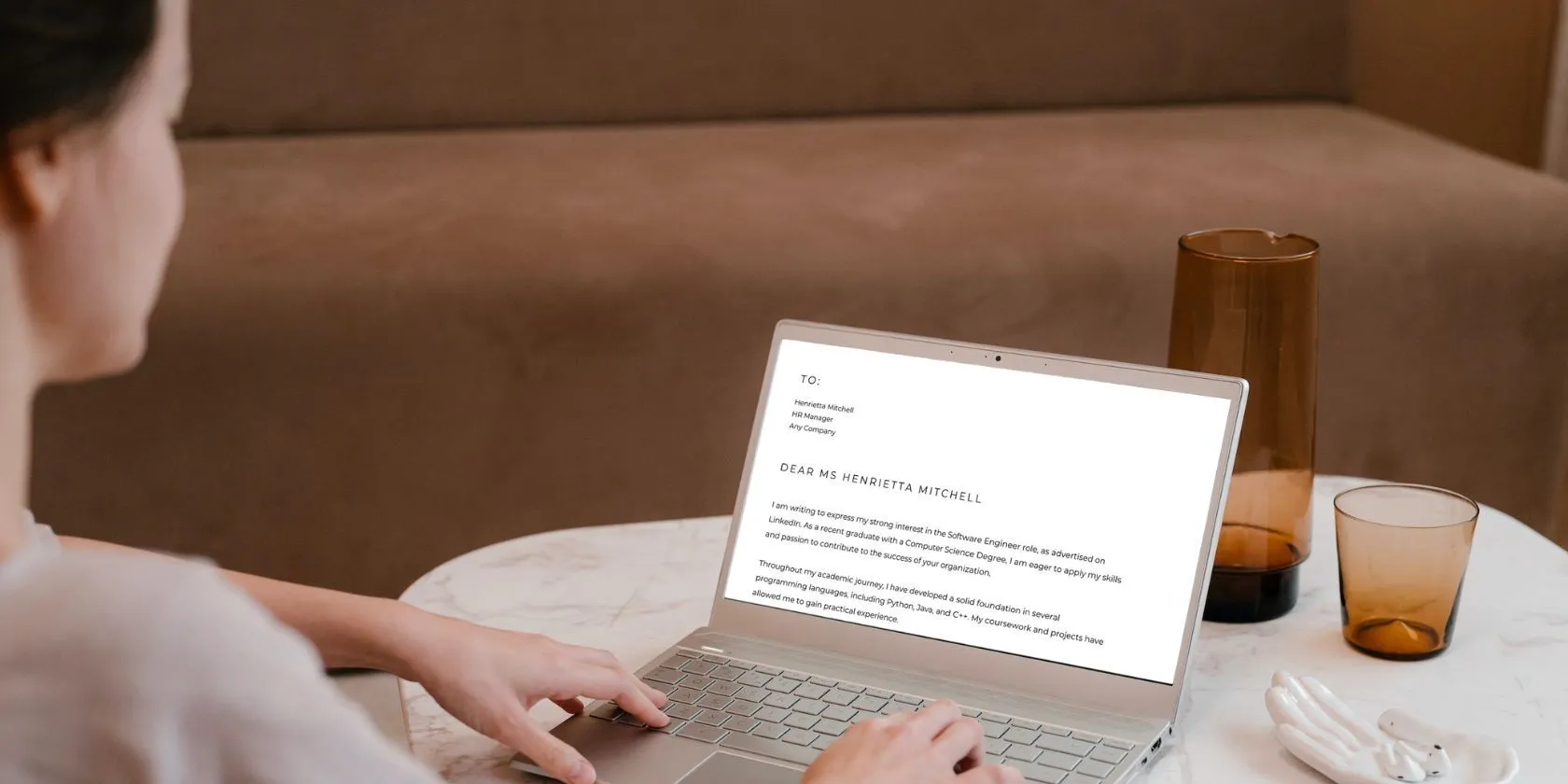
Projects and activities can provide valuable experience, particularly when you have no professional work history. Describe any projects you’ve undertaken, whether in school, as a volunteer, or independently. Highlight your role, responsibilities, and the skills you used. If you were involved in any extracurricular activities, detail your contributions and what you learned. For example, if you built a website as a personal project, describe your skills in web design, content creation, and project management. If you organized a fundraising event for charity, showcase your skills in event planning, communication, and teamwork. Focus on the outcomes and results of your activities. Did you improve efficiency, increase sales, or contribute to a positive outcome? Quantify your accomplishments whenever possible, and show the value you brought to the project.
Quantifying Achievements Whenever Possible
Quantifying your achievements makes your cover letter more compelling and demonstrates your value. Whenever possible, use numbers and metrics to showcase your accomplishments. Instead of saying ‘I improved customer service,’ say ‘I improved customer service satisfaction scores by 15%.’ Instead of saying ‘I managed social media,’ say ‘I increased social media engagement by 20% in six months.’ These specific numbers make a great impact. Did you save money, increase efficiency, or contribute to revenue growth? Be specific about what you did and what results you achieved. Even in non-professional settings, you can quantify your achievements. For instance, if you volunteered at a food bank, mention the number of hours you volunteered or the number of meals you helped serve. Quantifiable results provide concrete evidence of your skills and your ability to make a difference.
Demonstrating Your Soft Skills
Soft skills are essential for success in any job. These include communication, teamwork, problem-solving, adaptability, and time management. Even with no experience, you can demonstrate these skills. In your cover letter, give examples of how you have used these skills in your education, extracurricular activities, or personal projects. For example, if you are a good communicator, describe a time when you effectively communicated a complex idea, resolved a conflict, or presented information to a group. If you are a strong team player, describe how you worked with others to achieve a common goal. Highlighting these essential soft skills will make you stand out.
Showcasing Communication and Teamwork
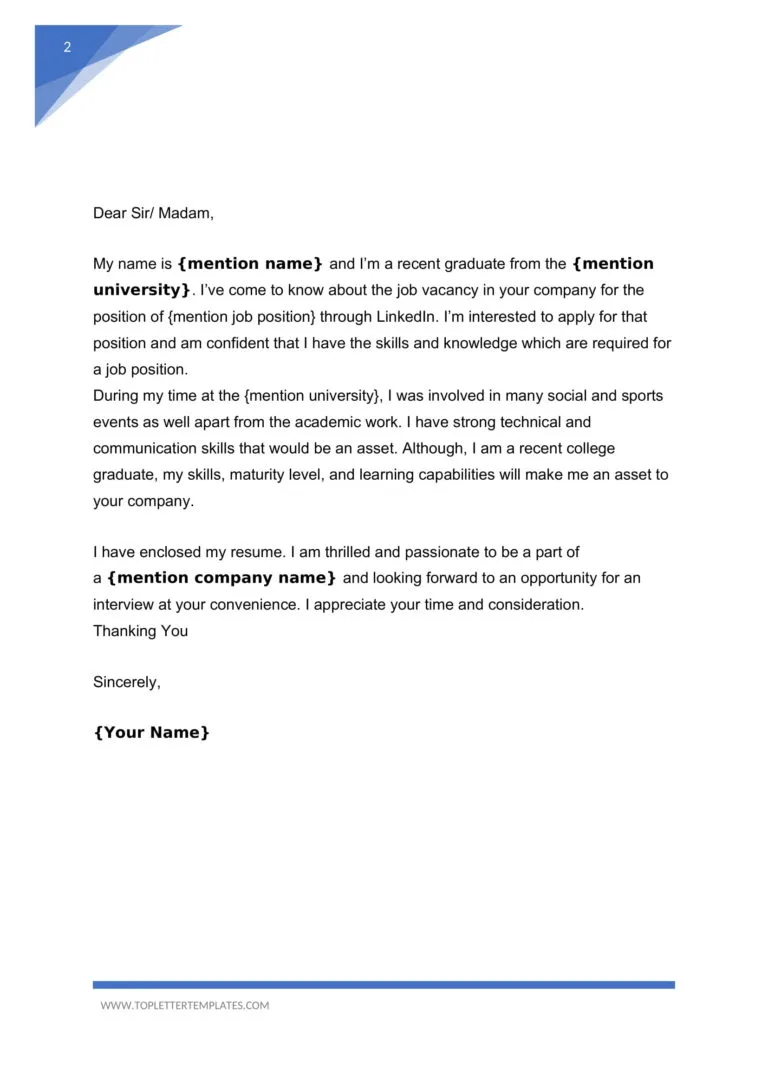
Communication and teamwork are key skills in almost all work environments. Illustrate your communication skills by showcasing how you’ve effectively conveyed ideas, written reports, given presentations, or listened actively. For example, mention any presentations you gave in school, or any debates you participated in. Describe how you communicated with classmates or teammates. Showcase your teamwork skills by giving examples of how you’ve collaborated with others to achieve a common goal. Mention instances where you contributed to a team project, or volunteer work. Highlight your ability to share ideas, compromise, and support your colleagues. You can highlight your communication and teamwork skills through examples from school projects, group activities, and volunteer experiences.
Highlighting Problem-Solving Abilities
Problem-solving is a crucial skill. Employers are always looking for people who can think critically, identify issues, and find effective solutions. Your cover letter should show your ability to think critically. Give specific examples of times when you faced a problem, describe the steps you took to solve it, and the outcome. Even if the problem occurred in a non-professional setting, focus on your process. For instance, describe a time you had to resolve a conflict, overcome a technical difficulty, or find a solution to a challenging situation. Highlight your analytical skills, your ability to identify and assess options, and your ability to find creative solutions. This ability to problem-solve demonstrates your capacity to think on your feet and to contribute to a positive outcome.
Writing a Strong Closing
The closing paragraph is your last opportunity to leave a positive impression. Reiterate your interest in the position and express your enthusiasm for the opportunity. Thank the hiring manager for their time and consideration. Show your interest in the role again and indicate that you are keen to learn more about the company and contribute. Finish with a strong call to action, such as, ‘I am eager to discuss how my skills can benefit your team and welcome the opportunity for an interview.’ Ensure your closing paragraph is concise, confident, and leaves a lasting impression. This will show that you are serious about the opportunity. It shows that you understand the importance of leaving the reader with a strong, positive impression.
Expressing Your Interest and Call to Action
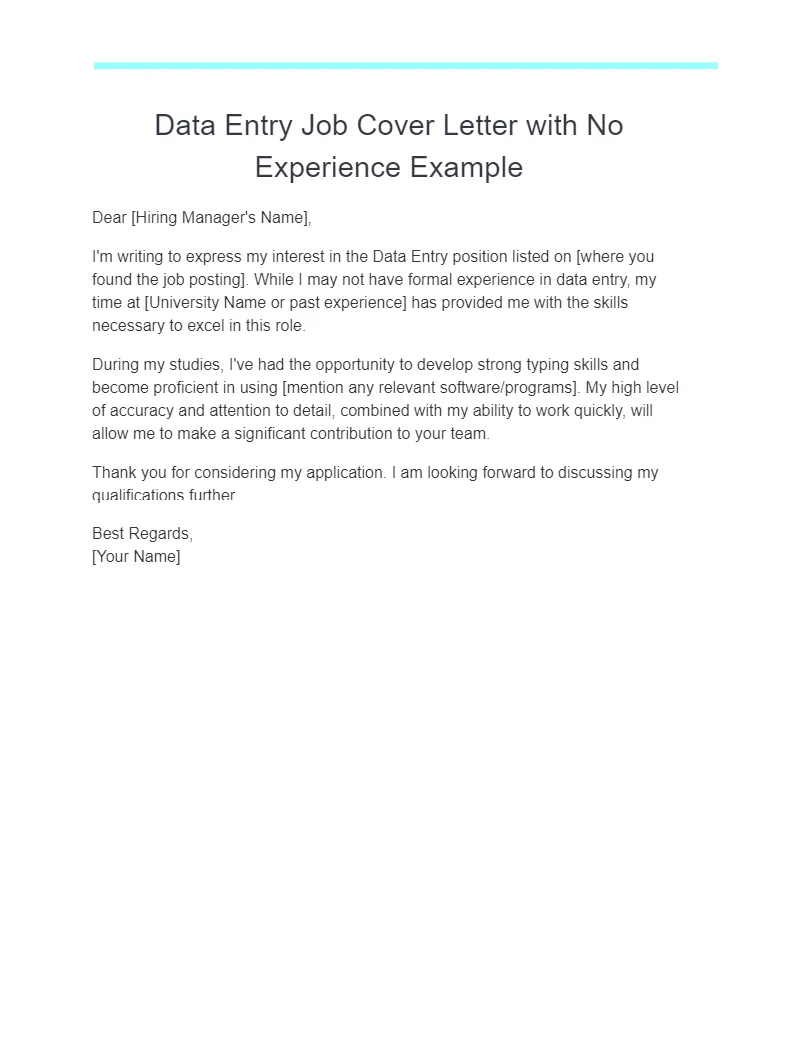
In your closing, express your interest in the position and the company. A call to action is essential in a cover letter. It motivates the hiring manager to take the next step. State your availability for an interview and express your interest. You can suggest a specific date or time. You may offer to provide additional information if needed. Avoid generic phrases like ‘I look forward to hearing from you.’ Instead, use a more proactive approach. Suggest a call to discuss your qualifications or to arrange an interview. An active call to action demonstrates your engagement and your genuine interest. This leaves the reader knowing that you are willing to take the next steps.
Proofreading and Editing Your Cover Letter
Proofreading and editing are essential steps to a well-written cover letter. Before you submit your cover letter, carefully proofread it for any errors. Ensure there are no typos, grammatical errors, or formatting inconsistencies. Read your letter aloud to catch any awkward phrasing or unclear sentences. Ask a friend, family member, or career counselor to review your cover letter. A fresh pair of eyes can catch mistakes you might have missed. Pay attention to the overall tone and flow of your letter. Is your message clear, concise, and compelling? Does it showcase your qualifications and express your enthusiasm? Always ensure that your letter is tailored to the specific job and company. A well-proofread and well-edited cover letter shows your attention to detail. It significantly increases your chances of getting an interview.
Tips for a Polished and Professional Letter
To create a professional cover letter, follow these tips. Keep your letter concise, aiming for one page. Use a professional font like Arial or Times New Roman. Use a formal tone and avoid slang or jargon. Tailor your letter to each specific job application. Proofread carefully for errors. Use a professional email address. Save your cover letter as a PDF to preserve the formatting. This ensures that the hiring manager views your letter exactly as you intended. By following these tips, you can create a polished and professional cover letter that will make a strong first impression and increase your chances of landing an interview. It shows that you understand the importance of professionalism and attention to detail.
Cover Letter Examples for Inspiration
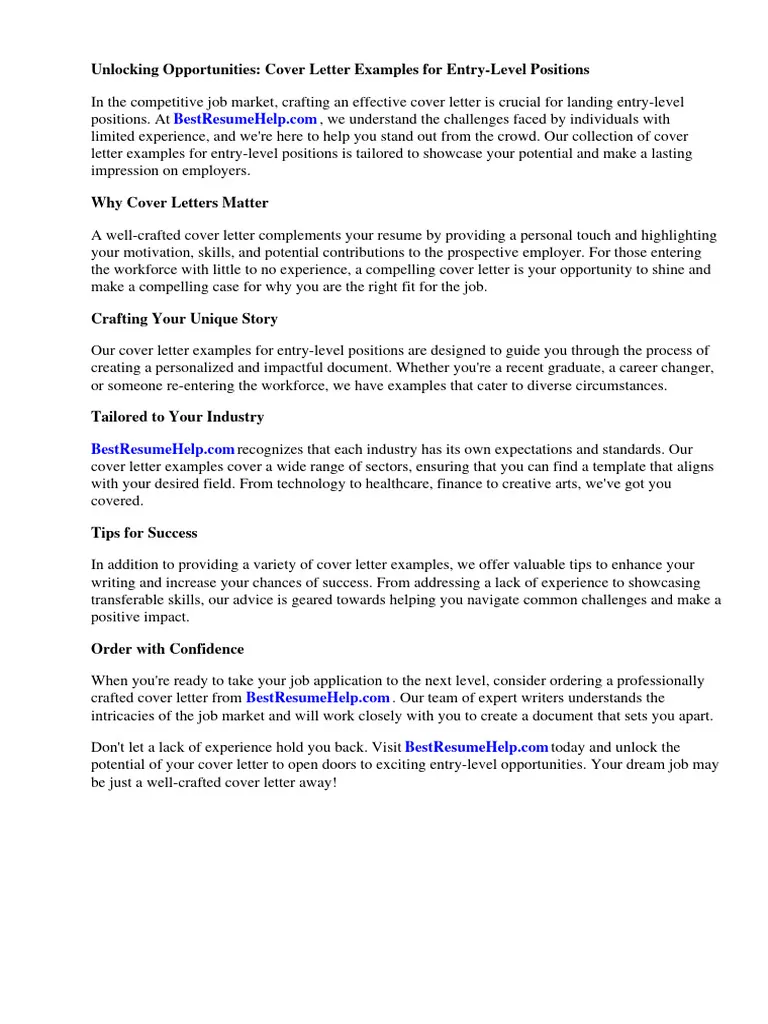
Looking at examples of cover letters can provide valuable inspiration and guidance. Search online for cover letter examples for entry-level positions or for your specific industry. Use these examples to get ideas on how to structure your letter, highlight your skills, and tailor your message. Many websites and career resources offer free templates and examples. However, remember that these are just examples. Customize them to reflect your unique skills, experiences, and career goals. Avoid simply copying and pasting content from these samples. Instead, use them as a starting point to create a cover letter that is original and authentic. A well-researched and personalized cover letter sample can be very helpful. This allows you to customize the content.
Entry-Level Cover Letter Examples
Entry-level cover letter examples are perfect for those with no experience. Look for examples that emphasize transferable skills, relevant coursework, and extracurricular activities. Analyze how the applicants showcase their enthusiasm, tailor their letters to the job description, and demonstrate their potential. Pay attention to the structure of the letter, the tone, and the language used. These examples often highlight education, personal projects, and volunteer work. Adapt them to your own background. Make sure your letters have no errors, and that the flow of each one makes sense. There are numerous resources available online that provide examples and templates. Use these to gain inspiration, not to copy exactly. Use the entry-level cover letter examples to learn how to showcase your assets.
Cover Letters for Specific Industries
Cover letters should be tailored to the specific industry. Research the norms and expectations of your target industry. Understand the terminology and key skills emphasized in the field. Tailor your cover letter to reflect this knowledge. For example, if you’re applying for a position in the tech industry, highlight your technical skills and your familiarity with relevant software and tools. If you’re applying for a creative role, showcase your portfolio and your design aesthetic. Tailoring your letter shows that you have researched and understand the specific needs and demands of that industry. By customizing your cover letter for the industry, you increase your chances of showcasing your skills and getting noticed.
Common Mistakes to Avoid
Avoid common mistakes in your cover letter. These mistakes can hurt your chances. Avoid using generic language and templates. Do not submit a letter that isn’t tailored to the job or the company. Avoid spelling and grammar errors, as these show a lack of attention to detail. Do not focus solely on what you want. Instead, focus on what you can offer the company. Do not include irrelevant information or details that do not align with the job requirements. Never use the same cover letter for different positions, as the content must be tailored to each job. Make sure to present an honest representation of your abilities, as false information can be a detriment to your image. By being aware of and avoiding these errors, you’ll be able to create a compelling cover letter and increase your chances of success.
Errors That Can Hurt Your Application
Some errors can significantly undermine your job application. One of the biggest is making spelling or grammatical errors. This shows a lack of attention to detail. Another is using a generic cover letter that is not tailored to the specific job. Always address the hiring manager by the wrong name. Submitting a cover letter that is longer than one page is usually a problem. Another major mistake is focusing on your needs rather than on what you can offer the company. Including irrelevant information can also distract from your key qualifications. These common mistakes can instantly disqualify your application. By carefully proofreading and tailoring your letter, you can avoid these errors. It’s best to highlight your qualifications and the value you can bring to the company.
Strategies for Overcoming a Lack of Experience
If you lack professional experience, adopt strategies to highlight your potential. Showcase your transferable skills, such as communication, teamwork, and problem-solving. Quantify your achievements whenever possible. Emphasize any relevant coursework, projects, or volunteer work. Tailor your cover letter to the specific job requirements. Research the company and show your understanding of their mission and values. Highlight your eagerness to learn and your willingness to take on new challenges. Focus on your transferable skills. Show your interest in the role and the company. Demonstrate your potential to quickly learn and contribute to the team. By using these strategies, you can overcome a lack of direct experience and make a strong case for your candidacy.
Focusing on Potential and Eagerness
When you lack experience, your cover letter must emphasize your potential. Show your enthusiasm for the role and the company. Highlight your eagerness to learn new skills and contribute to the team. Demonstrate your willingness to take initiative and go the extra mile. Explain how your skills and experiences align with the job requirements. Be specific about what you can bring to the table. Show the hiring manager that you are a motivated, dedicated, and eager to grow and learn. Convince the hiring manager of your capacity to succeed, even without direct experience. Focus on the ability to excel in the role. This will make your application stronger and show you are a great candidate.
